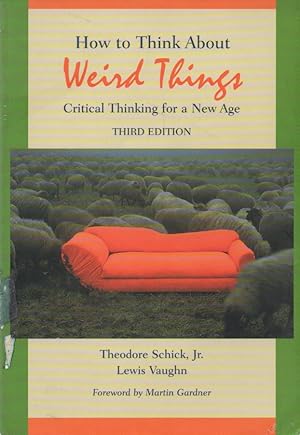Synopsis
This brief, inexpensive text helps students think critically, using examples from the weird claims and beliefs that abound in our culture to demonstrate the sound evaluation of any claim. The authors focus on types of logical arguments and proofs, making "How to Think about Weird Things" a versatile supplement for logic, critical thinking, philosophy of science, or any other science appreciation courses.
From the Publisher
A section on logic in Chapter 6 explains the nature and function of both deductive and inductive reasoning, and is followed by a case study and exercises for analysis.
A new section focuses on communicating with the dead and cold reading.
Treatment of evolution and creationism has been updated (see Chapter 4), and coverage of intelligent design theory has been expanded.
Many additional exercises, discussion questions, and 'field problems' have been added.
A revised chapter on cognitive relativism covers subjectivism, social constructivism, and conceptual relativism.
The text utilizes a detailed, step-by-step procedure-the SEARCH formula-for evaluating extraordinary claims.
Explanations of vital principles of knowledge, reasoning, and evidence help students sharpen their judgment and problem-solving skills.
Numerous boxes are integrated throughout the text, offering details on various beliefs, assessments by believers and skeptics, and reports of relevant scientific research.
Study questions appear at the end of each chapter.
An appendix contains additional information on informal fallacies.
"About this title" may belong to another edition of this title.
